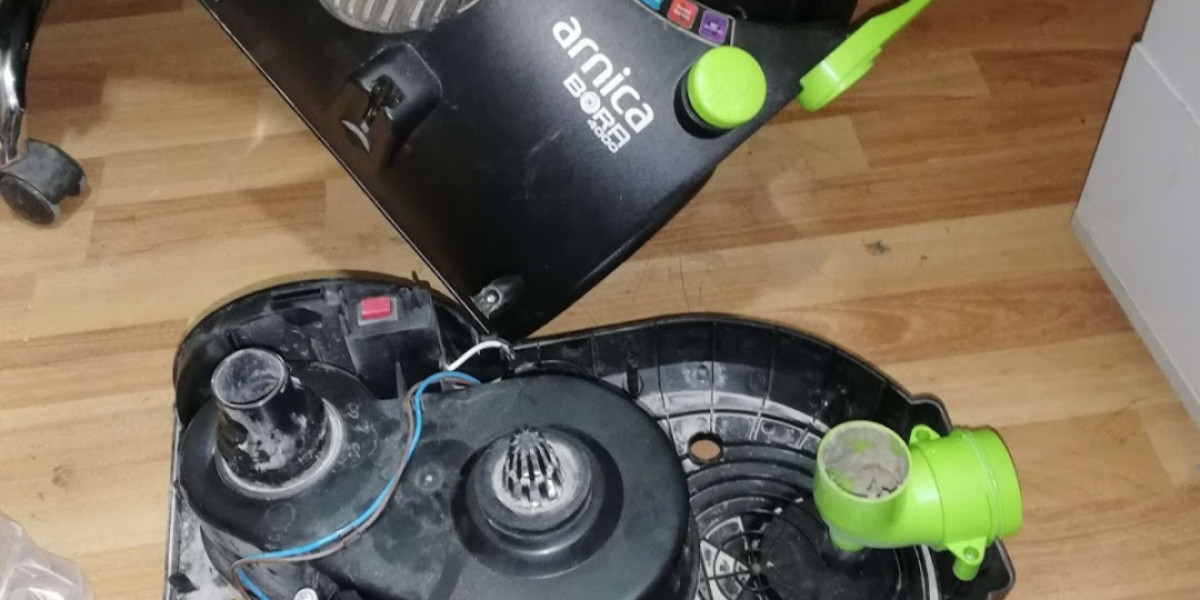Exploring the Toy Manufacturing Landscape in New Jersey
Toy manufacturing has long been a dynamic and evolving industry, contributing significantly to both the global economy and to the joy of children and adults alike. New Jersey, despite being a relatively small state, has played an outsized role in this sector, with a rich history of toy production and a vibrant manufacturing landscape. In this blog, we will explore the evolution of toy manufacturing in New Jersey, the key players in the industry, the technologies that are reshaping the production process, and the challenges and opportunities faced by toy manufacturers in the Garden State today.
Toys are a universal part of childhood, and the demand for well-made, creative, and safe toys continues to grow both in the United States and abroad. New Jersey, historically known for its manufacturing prowess, has been home to several prominent toy manufacturers. Over the years, the state has contributed significantly to the domestic toy industry, producing everything from iconic action figures to innovative educational toys.
With advancements in technology, changes in consumer preferences, and the increasing focus on sustainability, toy manufacturers in New Jersey are continuously adapting. In this blog, we will delve deep into New Jersey’s toy manufacturing landscape, examining its historical roots, the current market players, the role of technology, the challenges the industry faces, and the potential opportunities that lie ahead.
2. A Brief History of Toy Manufacturing in New Jersey
Early Beginnings
Toy manufacturing in New Jersey dates back to the late 19th and early 20th centuries when the state’s proximity to major transportation hubs and access to raw materials made it an attractive location for factories. During this period, New Jersey saw the rise of several small-scale manufacturers producing wooden and metal toys, many of which were distributed across the northeastern United States. The industrial infrastructure in cities like Newark, Paterson, and Elizabeth played a key role in shaping New Jersey’s early manufacturing identity.
The Post-War Boom
The post-World War II era brought significant growth to New Jersey’s toy manufacturing industry. With the economy booming and the birth rate rising sharply during the baby boomer generation, there was a massive demand for new and innovative toys. Manufacturers such as Lionel, known for their electric trains, and Ideal Toy Company, producers of the iconic “Teddy Bear,” expanded their operations in New Jersey. The period from the 1950s to the 1970s was seen as the golden age of American toy manufacturing, with New Jersey playing a central role in both production and distribution.
3. Major Toy Manufacturers in New Jersey
Iconic Brands with a Local Footprint
New Jersey has been home to several large and iconic toy manufacturers over the years. Companies like Toys "R" Us, which was headquartered in Wayne, NJ, have made a significant impact on the toy retail landscape. Though the company no longer exists in its original form, its roots in the state highlight the importance of New Jersey to the toy industry.
Another major player was the Ideal Toy Company, which once operated out of Newark, New Jersey. Ideal was known for creating a wide range of popular toys in the 20th century, including the iconic “Teddy Bear” and the “Rubik’s Cube.” The company played a major role in shaping toy culture in the United States and was a vital part of New Jersey's manufacturing legacy.
Small and Medium Enterprises (SMEs)
Today, New Jersey’s toy manufacturing landscape includes a mix of small and medium-sized enterprises (SMEs) that specialize in niche markets. These smaller manufacturers often focus on producing educational toys, STEM (Science, Technology, Engineering, and Mathematics) toys, and eco-friendly products that cater to changing consumer preferences. Companies such as Smart Play, based in New Jersey, specialize in educational toys that encourage cognitive development in children, combining learning with fun.
These SMEs have found ways to compete in a highly competitive global toy market by focusing on innovation, customization, and sustainability. Their ability to adapt quickly to market changes has allowed them to carve out a niche in the industry, contributing to New Jersey's vibrant toy manufacturing ecosystem.
4. The Role of Technology in Modern Toy Manufacturing
The advent of new technologies has transformed the toy manufacturing landscape in New Jersey, making the production process more efficient and introducing new opportunities for innovation.
Automation and Robotics
Automation has become a significant factor in the toy manufacturing process, particularly in larger factories. Robotics and automated machinery help to streamline production lines, improve precision, and reduce the need for manual labor in repetitive tasks. This has been particularly beneficial for New Jersey manufacturers dealing with the high cost of labor in the region.
Automation also allows manufacturers to scale production quickly to meet seasonal demands, such as the holiday season when toy sales typically surge. By utilizing robotics, New Jersey manufacturers can maintain competitive production costs while keeping up with consumer demand.
3D Printing and Prototyping
One of the most exciting developments in modern toy manufacturing is the use of 3D printing for rapid prototyping. This technology allows manufacturers to create prototypes of toys quickly and cost-effectively, enabling faster design iterations and product development. New Jersey-based toy companies are increasingly adopting 3D printing technology to stay ahead of the curve.
For example, custom toy manufacturers in the state have leveraged 3D printing to offer personalized toys, such as action figures and dolls that can be customized to resemble the buyer. This trend toward customization has been well-received by consumers, especially in the online retail space, and has opened new revenue streams for local manufacturers.
Sustainability and Eco-Friendly Materials
Sustainability is becoming a growing concern for both consumers and manufacturers. In response to the increasing demand for environmentally friendly products, New Jersey toy manufacturers have begun to incorporate sustainable practices into their production processes. Many companies now use recycled materials, biodegradable plastics, and non-toxic paints in their products.
Sustainability is not just about materials; it's also about minimizing waste and energy consumption during production. New Jersey manufacturers are increasingly investing in energy-efficient machinery and adopting waste-reduction practices in their factories to lessen their environmental impact.
5. Challenges Facing Toy Manufacturers in New Jersey
Despite the many opportunities, toy manufacturers in New Jersey face a variety of challenges that can impact their operations and profitability.
Labor Costs and Workforce Availability
One of the most significant challenges for manufacturers in New Jersey is the high cost of labor. Compared to other states and countries where labor costs are lower, New Jersey's wage rates make it more expensive to maintain a workforce. This is particularly challenging for smaller manufacturers who may not have the financial resources to automate extensively.
Additionally, the availability of skilled labor is another concern. As manufacturing becomes more technologically advanced, there is a growing need for workers with specialized skills in areas like robotics, machine operation, and product design. The shortage of such talent in New Jersey's labor market can make it difficult for toy manufacturers to remain competitive.
Supply Chain Disruptions
Global supply chain disruptions, such as those caused by the COVID-19 pandemic, have had a profound effect on the toy industry in New Jersey. Manufacturers rely heavily on raw materials sourced from overseas, and delays in shipping or supply shortages can result in production slowdowns and increased costs. These disruptions have forced many manufacturers to reevaluate their supply chain strategies and look for alternative sources closer to home.
Safety Regulations and Compliance
Toy manufacturers must comply with a wide array of safety standards and regulations, both at the federal and state levels. These regulations are designed to ensure that toys are safe for children, but they can also impose significant costs on manufacturers who must invest in testing and certification processes.
In New Jersey, toy manufacturers must comply with stringent guidelines set by the Consumer Product Safety Commission (CPSC) and other regulatory bodies. Failure to meet these standards can result in costly recalls, damage to brand reputation, and legal penalties.
6. Opportunities for Growth and Innovation
Despite these challenges, there are several areas of opportunity for New Jersey's toy manufacturers to grow and innovate.
Educational and STEM Toys
One of the fastest-growing segments of the toy industry is educational toys, particularly those that focus on STEM (Science, Technology, Engineering, and Mathematics) learning. These toys help children develop critical thinking, problem-solving, and creativity skills while also providing entertainment. New Jersey toy manufacturers, especially smaller companies, have been quick to capitalize on this trend, producing a wide range of STEM-based toys that cater to parents looking to combine play with education.
Companies such as Elenco Electronics, headquartered in New Jersey, produce educational toys like Snap Circuits, which allow children to build electronic circuits and learn about electricity in a fun and interactive way.
Custom and Personalized Toy Markets
As consumer preferences shift toward unique, personalized products, there is a growing demand for custom-made toys. New Jersey manufacturers have the advantage of being able to produce high-quality, bespoke toys in smaller quantities, making them more agile in responding to niche markets.
Whether it's creating custom action figures, dolls that resemble their owners, or board games with personalized elements, the customization market presents a lucrative opportunity for toy manufacturers in New Jersey. Companies that can offer quick turnaround times and unique, high-quality products stand to benefit greatly from this growing trend.
Export and Global Market Expansion
While the domestic market remains strong, global demand for American-made toys is increasing, especially in emerging economies. New Jersey toy manufacturers have the opportunity to expand their market reach by focusing on exports. Countries in Asia, Latin America, and the Middle East are seeing growing middle-class populations with disposable incomes, and the demand for high-quality toys is on the rise.
Exporting toys can be a complex process due to varying safety standards and regulations in different countries. However, for manufacturers willing to navigate these challenges, the global market offers significant growth potential.
7. The Future of Toy Manufacturing in New Jersey
The future of toy manufacturing in New Jersey will likely be shaped by a combination of technological advancements, evolving consumer preferences, and the ability to adapt to global market forces. While the industry faces challenges, including labor costs and supply chain disruptions, the opportunities for innovation and growth are plentiful.
Manufacturers in New Jersey are well-positioned to capitalize on trends such as the increasing demand for STEM toys, the growing market for customized and personalized products, and the rise of sustainability in consumer choices. By embracing new technologies like 3D printing, automation, and eco-friendly materials, New Jersey's toy manufacturers can continue to thrive in an increasingly competitive and dynamic industry.
Final Thoughts
New Jersey's toy manufacturing industry has a long and storied history, from its early days producing simple wooden toys to becoming a hub for some of the most iconic brands in the world. Today, the state's toy manufacturers are facing a rapidly changing landscape, shaped by technological innovation, global competition, and shifting consumer preferences. Despite the challenges, the future is bright for New Jersey's toy makers, who have proven their resilience and adaptability over the decades.
As New Jersey continues to evolve as a key player in the toy manufacturing sector, the state remains a critical part of the larger American toy industry. Through a combination of innovation, sustainability, and a deep commitment to quality, New Jersey’s toy manufacturers are poised to continue creating fun and educational products that inspire the next generation of children.
By understanding the historical context, current market conditions, and future trends, we can appreciate the rich tapestry that makes up New Jersey's toy manufacturing landscape and its lasting impact on the world of play.








